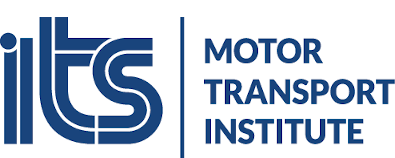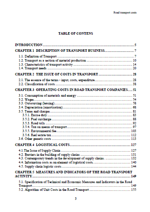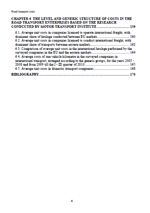Transport enterprises, as business entities, are directly fulfilling social needs of a certain type i.e. transport services. This is a determinant of the existence of these business entities – their inherent objective. The starting point in the micro-economic sphere, to conduct such defined activity, is a production sphere. The result of the activity, with respect to the factors affecting the economic process links, is in a general outline, the representation of the own capabilities of the enterprises (assuming, that the basis for the operation are prakseological rules of the economic efficiency) and external conditions, formed by the centre and the surroundings of transport.
The effects, in the context of the results of the actions undertaken, manifest themselves, on one hand, as the relocation conducted, as a basic activity, belonging to the sphere of consumption, and on the other – by producing the contribution of the enterprise to the national income, that is to the sphere of distribution. This final result is a representation of the efficiency of the enterprises operation, utilising means for achieving the objectives, i.e. the entirety of the expenditures incurred in the process.
For this reason, the authors have made an attempt to look closer at the essence of the costs, the analysis of their individual elements as well as factors (including those legislative ones), that affect their value-related, monetary representation.
The book contains six chapters.
Chapter one, apart from quoting encyclopaedic definitions of transport as well as relocation and logistical process, the authors decided to emphasise special characteristics, peculiar to this branch of the national economy and first of all its material character.
The second chapter deals with the analysis of the meaning of such three terms as: inputs, costs, expenditures, which are often interchangeably used. The authors quote other papers and Polish as well as foreign terminology on economy and finances. The meaning of each of those terms has been discussed in detail as well as the significant differences between them. It was shown, that these terms are not synonymous, and their wrong use, inconsistent with their actual conceptual meaning may have unfavourable economic consequences, also in the specific transport activities. There is also a classification conducted of the transport costs in the classifications: generic, functional and calculation related; and each of them was given differentiating criteria.
Chapter three refers to operating costs of the transport enterprises, which have been systematised in the generic classification. Special attention was paid to those items, that are characteristic, to the road transport. This concerns first of all the leasing (as a form of outsourced services), taxes and fees levied on the road transport trade, including the tax on the transport means, road tolls and environmental charges. The issues of any insurances related to the operation of the road transport have been presented. There is a review of the legal acts, being a basis for establishing the level of taxes and charges, levied on the road transport, over the last few years until 2011 inclusive.
The fourth chapter deals with the issue of the logistical costs. The current conditions of functioning of the supply chains have been indicated, as well as the significance of the information as a vital element of the logistical costs. The criteria forming a basis for their classification have been presented and discussed.
The fifth chapter presents review of the measures and technical and economic indicators taking into account specific features of the road transport business. There is also a costs calculation system for the haulage of the freight by road, which takes into account their division into dependent and independent on the mileage and energy sources. Analytical equations have been shown, that contain costs arranged according to the abovementioned division as well as selected technical and economic indicators to calculate the unit cost of one ton-kilometre.
Chapter six contains results of the research on generic structure of costs at the road transport enterprises in Poland, carried out by Motor Transport Institute (ITS) in Warsaw, in 2010. The studies covered enterprises conducting freight haulage both domestically and internationally. All those types of haulages have had the average costs of the vehicle-kilometre shown arranged according to the accepted groups of costs.
Please place orders with the Scientific Information and Publications Section, ITS - by phone (22 43 85 172), fax (22 43 85 401) or e-mail (wydawnictwa@its.waw.pl)












